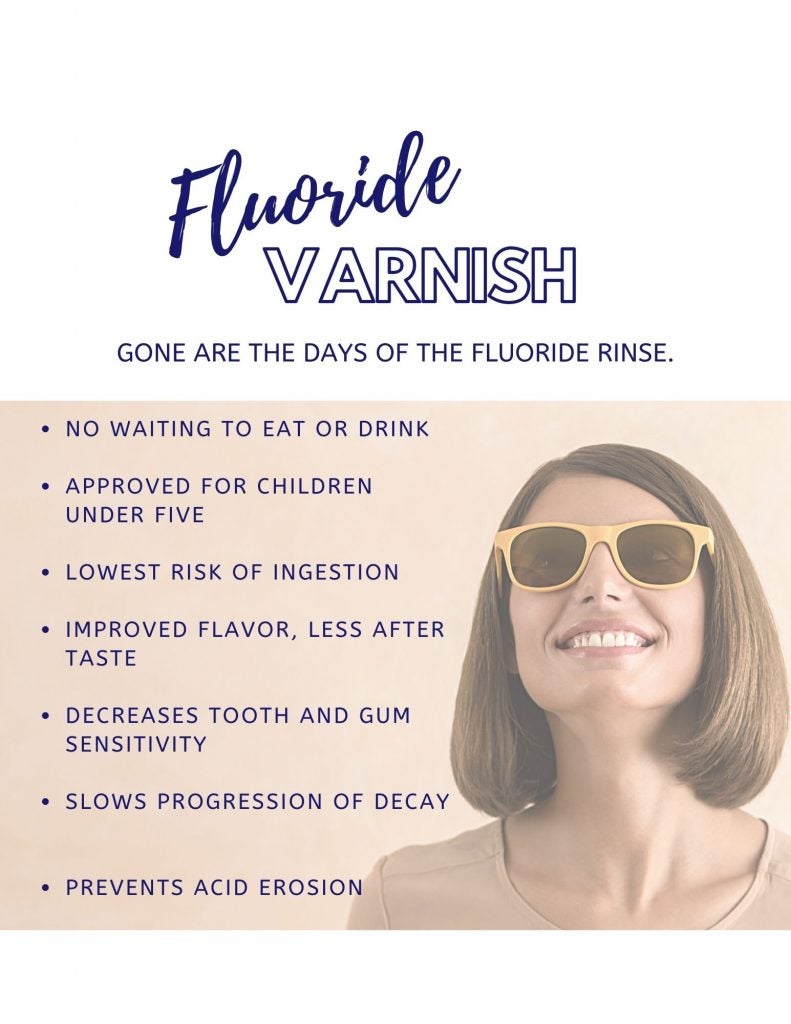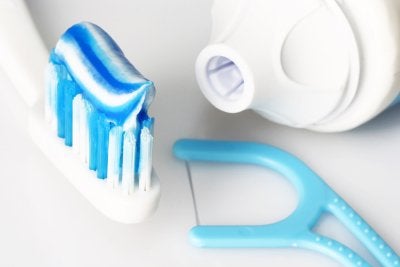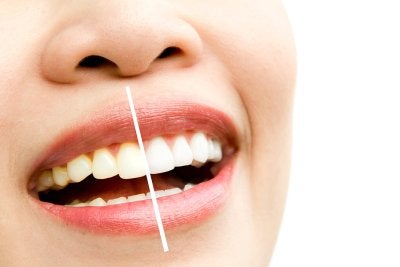-
We Have Been Keeping a Secret 🤫
We are excited to announce that within a few short days, Your Smile Bel Air Family Dentistry will move to a brand new location, just around the corner in the Bell Gate Shopping Center*. At 1205B Baltimore Pike, you and your family can continue to count on the same personal experience and exceptional care that we have always provided.
Our new office at 1205B Baltimore Pike will be conveniently and safely accessible from Baltimore Pike (also known as Bel Air Road) and Old Joppa Road. Your Smile Bel Air Family Dentistry will share the building with Mucho Gusto and is adjacent to Conrad’s Crabs.
This new space in the Bell Gate Shopping Center was truly built from the ground up, with each element thoughtfully and intentionally designed for the safety and wellness of our staff and patients like you.Starting this new chapter during a global health crisis has provided us the opportunity to create a space that far exceeds the CDC standards for disease prevention. Although most of our upgrades will be fresh and shimmering, some notable additions may not be so obvious. Below, we have highlighted just a few of them.
Upgrade Highlights
• UV Light HVAC Filtration System
• Designated Handicap Parking with Ground Floor Access
• Seamless Hospital Grade Flooring
• Reusable Water Bottle Filling Station
• Scheduled Supplemental Floor Maintenance
• Onsite HOCl Disinfectant Generator
• Closed Circuit Security Monitoring
• (2) Portable HEPA Air Purifiers with Real-time Air Quality Sensors
• Overall Building Design to Reduce Surface Contact.
• Secret Window to Access Free Tacos (Pending Approval)We will open our doors on August 29th exclusively at 1205B Baltimore Pike. Our long-time mascot, Mr. Bear, will be on vacation for the next two weeks as we complete this transition, but the rest of our staff will have daily access to our phones and emails to help you with any questions or concerns. Thank you for your continued support. Without you, we could not have made this possible.
Kindly,
Danielle D. Zhu, D.D.S., P.A.*As a result of ongoing development in the Bell Gate Shopping Center, you may find address inconsistencies between the surrounding businesses. (Interchangeable use of the street names Bel Air Road or Baltimore Pike, and omitted suite identifiers.)
-
Oral Health vs. Covid-19
Bacteria= Bad
Infection= Worse
Covid-19 + Infection= DeadlyThe American Dental Association has linked the progression and severity of Covid-19 to oral health. Turns out, there is – in fact, they found that 20 percent of those who contracted COVID developed severe symptoms due to a high “bacterial load.”
In other words, those who suffer from gingivitis or periodontitis have higher rates of infection causing bacteria in their mouth, which enters their body in a myriad of ways. The first, is through the blood via the vessels in the gums and teeth. The second is via respiratory, by breathing in this bacteria.
As a result, those who may have contracted COVID or are suffering from minor symptoms, develop post-viral bacterial complications, such as pneumonia, sepsis, or respiratory distress syndrome. When this happens, the body’s immune system is weakened, resulting in much more severe symptoms than would have otherwise occurred.
Read this story and more on our Facebook page.
-
Let’s Take Prevention to the Next Level

-
You Don’t Need to Pass a Football Like Patrick Mahomes to Remove a Loose Baby Tooth
By Christopher Larsen, DMD & Jennifer Worner, DMD
Kids get pretty inventive pulling a loose primary (baby) tooth. After all, there’s a profit motive involved (aka the Tooth Fairy). But a young Kansas City Chiefs fan may have topped his peers with his method, revealed in a recent Twitter video that went viral.
Inspired by all-star KC quarterback Patrick Mahomes (and sporting his #15 jersey), 7-year-old Jensen Palmer tied his loose tooth to a football with a line of string. Then, announcing “This is how an MVP gets their tooth out,” the next-gen QB sent the ball flying, with the tooth tailing close behind.
It appears young Palmer was no worse for wear with his tooth removal technique. But if you’re thinking there might be a less risky, and less dramatic, way to remove a loose tooth, you’re right. The first thing you should know, though: Primary teeth come out when they’re good and ready, and that’s important. Primary teeth play an important role in a child’s current dental and speech function and future dental development. For the latter, they serve as placeholders for permanent teeth developing within the gums. If one is lost prematurely, the corresponding permanent tooth might erupt out of position and cause bite problems.
In normal development, though, a primary tooth coming out coincides closely with the linked permanent tooth coming in. When it’s time, the primary tooth lets you know by becoming quite loose in the socket.
If you think one of your children’s primary teeth is ready, clean your hands first with soap and water. Then using a clean tissue, you should be able to easily wiggle the tooth with little tension. Grasp the tooth with the tissue and give it a little horizontal twist to pop it out. If that doesn’t work, wait a day or two before trying again. If it does come out, be sure you have some clean gauze handy in case of bleeding from the empty socket.
Normally, nature takes its course from this point. But be on the lookout for abnormal signs like fragments of the tooth left behind in the socket (not to be mistaken for the top of the permanent tooth coming in). You should also look for redness, swelling, or complaints of pain the following day—signs of possible infection. If you see anything like this, make a prompt appointment so we can take a look. Losing a primary tooth is a signpost pointing the way from childhood to adulthood (not to mention a windfall for kids under their pillows). You can help make it a smooth transition—no forward pass required.
If you would like more information about caring for primary teeth, please contact us or schedule a consultation. To learn more, read the Dear Doctor magazine articles “Importance of Baby Teeth” and “Losing a Baby Tooth.”
-
Working Weekends
Dr. Zhu is always learning something new! For this class, we were more than happy to be her patient!
Posted by Your Smile Bel Air Family Dentistry on Saturday, October 10, 2020
-
Additional Appointments Added
To help accommodate patients affected by Covid-19, we have added several additional appointments to our schedule for October.
-
#MasksOnMaryland
 Effective this Friday, July 31 at 5 p.m., we are expanding the current statewide masking order requiring the wearing of masks or face coverings in the public spaces of all businesses across the state. Face coverings will also be required at outdoor public areas whenever it is not possible to maintain physical distancing.
Effective this Friday, July 31 at 5 p.m., we are expanding the current statewide masking order requiring the wearing of masks or face coverings in the public spaces of all businesses across the state. Face coverings will also be required at outdoor public areas whenever it is not possible to maintain physical distancing.This expansion of the masking order is an action that is fact-based, apolitical, and solidly grounded in science. While it can be an inconvenience, especially in the heat, the science and the data are very clear: wearing masks is the single best mitigation strategy we have to fight this virus. It is the best way to keep you and your family safe, to keep people out of the hospital, and to keep Maryland open for business. If you do nothing else, wearing a mask alone would help us significantly slow the spread of this virus and continue on our road to health and economic recovery.
-
Could Sugarless Drinks Hurt Your Teeth?
You are probably aware of the problems that sugar can cause for your teeth and gums, but switching to sugarless drinks might not be the final answer for good dental care. Remember that you should be visiting your Dr. Zhu for regular appointments as well as practicing proper dental care at home. Check out this video clip to find out if sugarless drinks could be hurting your teeth.
It is not uncommon to see advertisements for sugarless drinks that claim to be healthier than their competitors. However, switching to these sugarless drinks might not be the best idea for your dental care. Sodas, sports drinks, and other sugarless beverages might still contain acids that can attack your tooth enamel and cause decay; despite the way these drinks are advertised, this is not very friendly towards your teeth. Be sure to read the labels carefully and practice proper dental hygiene daily.
-
How Ignoring Your Dental Care Can Affect Your Health
When your dentist tells you to practice proper dental care in Bel Air, MD, you shouldn’t brush off this recommendation. You should be flossing every day, brushing your teeth twice each day, and seeing your dentist on a regular basis for dental cleanings . Failing to do so can result in a wide array of problems that can affect all aspects of your health and well-being. Poor dental care can result in a reduced self-image, poor dental health, and problems with your general health. Keep reading and find out why it’s so important that you practice proper dental care.

Diminished Self-Confidence
When you fail to brush and floss your teeth, visit the dental office, or take care of other dental care responsibilities, your smile might not look the way you want it to look. While this seems like a purely aesthetic issue at first, it can have real consequences on your mental health. People who are ashamed of their teeth may smile less frequently; since the brain and the body work in tandem, this lack of smiling can trick your mind into thinking you’re upset. Some people do experience anxiety and depression because of their self-image, and the smile is an integral factor.
Poor Oral Health
Some people who neglect dental care might not suffer mentally, but no one escapes the decline in oral health that comes with this neglect. The process of brushing your teeth helps to remove food debris, acids, and bacteria that could otherwise build up on your teeth. When they’ve built up long enough they can lead to decay and dental cavities as well as periodontal problems like gingivitis. When plaque hardens into tartar, you will need a professional dental cleaning in order to have it removed.
Inhibited Overall Well-Being
In addition to impairing your self-image and dental health, neglecting your dental care can lead to problems with your general health. Oral health and general health are linked in a number of ways, and poor dental health has been associated with conditions like diabetes and heart disease. Make sure you take care of your oral health to stay in top shape.
-
Answering Your Questions About Teeth Whitening
Everyone wants a bright and beautiful smile, so it’s no surprise that professional whitening is one of the most commonly performed procedures in cosmetic dentistry. If you’re thinking about seeing a dentist for tooth whitening in Bel Air, MD , then continue reading to learn the answers to common questions about this treatment.

Why is professional whitening better than other options?
The greatest benefit that you’ll gain by seeing a dentist for tooth whitening is speed. Unlike over-the-counter kits, professional whitening uses a stronger formula that can provide you with a noticeably whiter smile in a single treatment. At-home kits that you can pick up at the drugstore often take a week or longer to provide noticeable results.
What happens during teeth whitening?
When you visit your dental office for professional tooth whitening, your dentist will have you wear a tray during the treatment that will cover your teeth with a specially formulated whitening gel. Also, your dentist may use a type of light to enhance the whitening effects of the gel. These appointments typically take about an hour.
How long will my results last?
The answer to this question depends on a number of factors. How well your teeth take to the treatment and how much enamel they have can affect how long your results last. Also, your oral hygiene practices, dietary choices, and lifestyle habits can influence how long your tooth whitening results remain noticeable.
How can I make my results last longer?
Luckily, there are a number of steps that you can take to help retain your tooth whitening results. First, avoid eating or drinking any items that can stain your teeth, such as coffee, tea, soda, berries, and anything tomato-based. If you do choose to eat and drink these items, be sure to rinse your mouth or brush your teeth afterward. Finally, keeping up with twice-daily tooth brushing and biannual dental cleanings can help prevent stains from building up on your teeth.
categories
- Uncategorized
- General Dentistry
- Toothache
- Emergency Dentistry
- Family Dentistry
- Receding Gums
- Cosmetic Dentistry
- Veneers
- Gum Disease
- Gingivitis
- Dental Crowns
- Orthodontics
- Dental Implants
- Root Canal
- Wisdom Teeth
- Teeth Whitening
- Your Smile
- Composite Fillings
- Lumineers
- Dentures
- Invisalign
- BrightSmile
- Dental Bridge
- Abscessed Tooth
- Sealants

